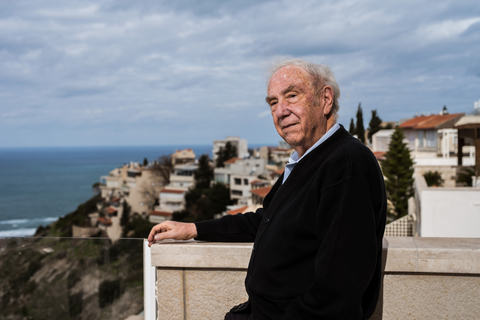ST. HELIER, Jersey– Novocure (NASDAQ: NVCR) today announced that Yoram Palti, Novocure’s Founder and Chief Technology Officer, has been selected to receive the 2022 Israel Prize in the field of entrepreneurship and technological innovation.
Bestowed by the State of Israel, the Israel Prize recognizes Israeli citizens who have shown special excellence and a breakthrough in their field or who have made a special contribution to Israeli society.
Professor Palti, a professor emeritus of physiology and biophysics at the Technion – Israel Institute of Technology, founded Novocure in 2000 based on a groundbreaking idea: that electric fields at very specific frequencies could be harnessed to treat cancer.
“Professor Palti demonstrated great courage as he pursued a truly novel approach to cancer treatment,” said Asaf Danziger, Novocure’s CEO. “We are proud that he is being recognized for his commitment to scientific innovation and his impact on patients and families around the world.”
Combining his expertise in physics, biology and medicine, Professor Palti believed that electric fields could be used in a new way to help people with cancer. Forty years after writing his doctoral thesis on the distribution of electric fields in and around nerve fibers, he looked back on the data with a fresh perspective and began computing how to use electric fields to destroy cancer cells.
Next, Professor Palti set up a laboratory in his basement and conducted experiments that would lead to his invention of Tumor Treating Fields (TTFields), electric fields that disrupt cancer cell division. Additional research followed, and in 2003, Novocure began its first clinical trial of TTFields in multiple solid tumor types.
“Professor Palti’s ingenuity and drive in the early years of Novocure laid the foundation for our company to grow into the global oncology company we are today, with more than 22,000 patients treated to date and more than 1,100 employees,” said Bill Doyle, Novocure’s Executive Chairman.
Today, TTFields therapy is approved in certain countries for the treatment of adults with glioblastoma or mesothelioma, two of the most difficult cancer types to treat. The therapy shows promise in multiple solid tumor types — including some of the most aggressive forms of cancer.
“I was looking for a treatment for cancer, and my research eventually led to a totally new modality,” said Professor Palti. “Of course, what matters most is that patients receive an effective treatment, whatever that treatment may be. I am proud that the new mode of treatment worked, and as a result, our therapy is reaching people who need it. We will continue to develop and work to optimize our therapy so that more patients can benefit.”


